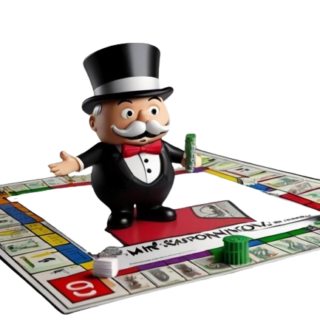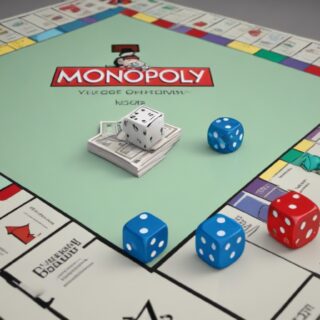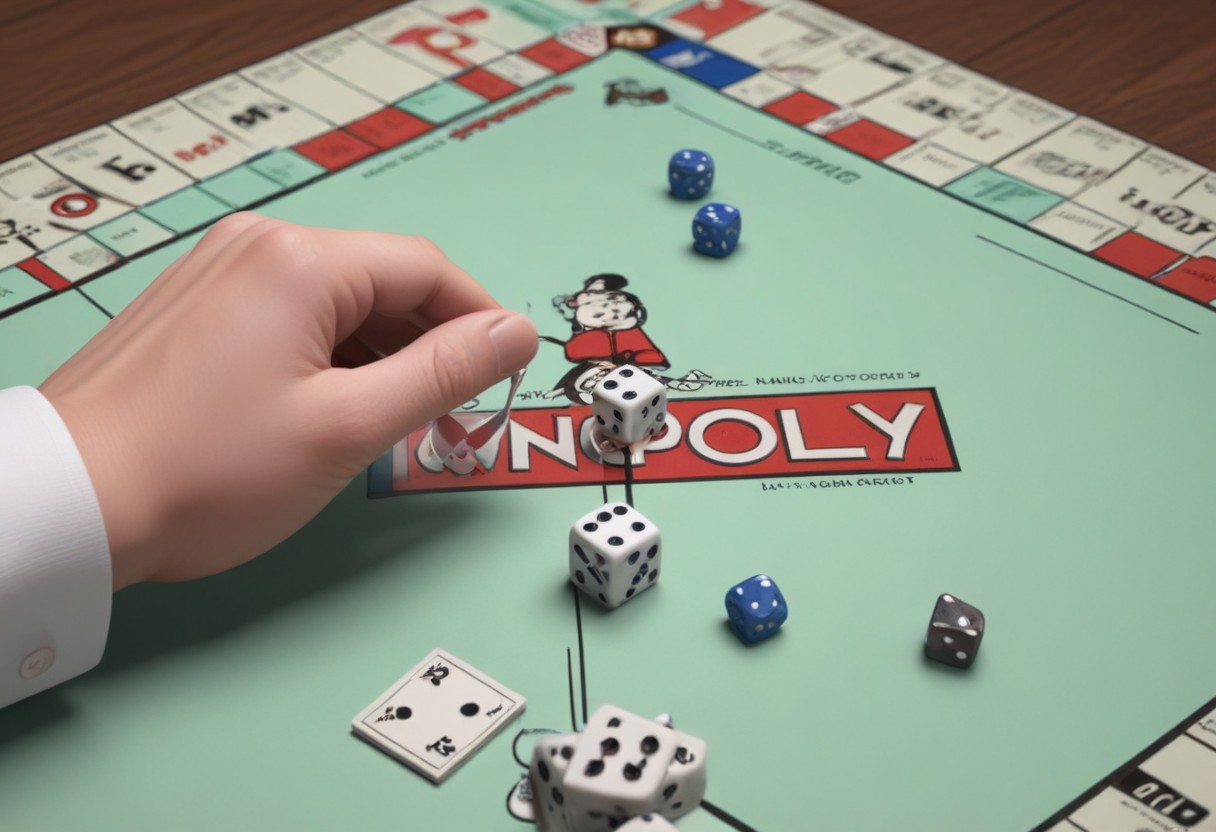Mastering Money: The Rules of Wealth in Monopoly
Monopoly is a game of strategy, negotiation, and, most importantly, managing your money. Understanding how money works in Monopoly is key to your success. Let’s dive into the rules governing money in this classic board game:
The Currency
Monopoly uses colorful paper bills in different denominations to represent money. The denominations are as follows:
- $1 (white)
- $5 (pink)
- $10 (yellow)
- $20 (green)
- $50 (blue)
- $100 (beige)
- $500 (orange)

Starting Money
At the beginning of the game, each player is given a set amount of money. The standard starting amount is as follows:
- 2 players: $1500 each
- 3 players: $1000 each
- 4 players: $1500 each
- 5 players: $1200 each
- 6 players: $1000 each
Income and Expenses
Throughout the game, you’ll earn money and incur expenses. Here’s how it works:
- Collecting Salary: When you pass or land on the “GO” space, collect $200 from the bank.
- Paying Rent: When you land on a property owned by another player, you must pay rent according to the property’s value and any buildings on it.
- Buying Properties: When you buy an unowned property, pay the bank the price listed on the space.
- Building Houses and Hotels: When you decide to build houses or hotels on your properties, you must pay the bank the appropriate amount.
- Taxes and Penalties: Some spaces on the board require you to pay taxes or fines, such as Income Tax or Luxury Tax.
Bankruptcy
If you cannot afford to pay rent, buy a property, or pay a fine, you are declared bankrupt. In this case, you must give all your money and properties to the player you owe, and you are out of the game.
Winning the Game
The goal of Monopoly is to be the last player remaining in the game. This means bankrupting your opponents through strategic property purchases, smart trading, and shrewd money management.
Conclusion
Mastering the rules of money in Monopoly is essential for achieving victory. By understanding how income, expenses, and bankruptcy work, you can develop a winning strategy and outmaneuver your opponents. So, grab your cash, roll the dice, and start building your real estate empire in the world of Monopoly!
What comes with the game
Here’s a table outlining the components included in a standard Monopoly game:
| Component | Description |
|---|---|
| Game Board | The board consists of 40 spaces representing properties, railroads, utilities, and special spaces like Chance and Community Chest. Players move around the board buying properties and collecting rent. |
| Tokens | Tokens represent players on the board and include classic items like the thimble, top hat, and car. Players choose a token at the beginning of the game. |
| Money | Monopoly money comes in different denominations and is used to buy properties, pay rent, and manage finances throughout the game. |
| Property Deeds | Deeds represent ownership of properties and include information such as purchase price, rent cost, and building costs. Players collect deeds when they buy properties. |
| Houses and Hotels | Players can purchase houses and hotels to increase rent on their properties. Houses are placed on properties to indicate rent increases, and hotels replace houses for higher rent. |
| Chance and Community Chest | These cards are drawn when a player lands on the corresponding space. They contain instructions that can be beneficial or detrimental to the player, such as paying or receiving money, or moving to a different space on the board. |
| Dice | Monopoly uses two six-sided dice for movement around the board. Players roll the dice to determine how many spaces to move on their turn. |
| Banker’s Tray | The banker manages the game’s money and properties. The banker’s tray includes compartments for the different denominations of money and property deeds. |
| Rules | The rulebook outlines how to play the game, including setup, gameplay, and winning conditions. It also includes information on optional rules and variations. |
| Mortgaged Property Cards | When a property is mortgaged, a card is placed on the property to indicate that it cannot collect rent until the mortgage is paid off. Players can mortgage properties to raise funds. |
| Houses and Hotels Tokens | These tokens are used to represent houses and hotels when purchased by players. They are placed on properties to indicate the level of development and the increased rent value. |
Unlocking the Secrets of Success in Monopoly: How to Profit from the Game
Monopoly is not just a game of luck; it’s a game of strategy, negotiation, and financial acumen. To truly excel and dominate the board, you need to understand and leverage the secrets of success in Monopoly. Here’s how you can profit from these game-changing strategies:
1. Strategic Property Acquisition
- Focus on Color Groups: Acquiring a complete color group allows you to build houses and hotels, significantly increasing rent fees.
- High-Rent Districts: Properties like Boardwalk and Park Place have the highest rent fees. Acquiring these can lead to substantial profits.
- Railroads and Utilities: Often overlooked, these properties can be lucrative if you own all in their respective groups.
2. Financial Management
- Cash Flow Management: Always keep enough cash on hand to pay rent and other expenses, but invest the rest in properties and developments.
- Mortgages: Don’t be afraid to mortgage properties to raise funds for investments, but be strategic about it.
3. Negotiation and Trading
- Strategic Trading: Trading properties with other players can help you complete color groups and gain a competitive edge.
- Timing: Knowing when to trade and what to offer can make or break a deal. Be mindful of your opponents’ needs and strategies.
4. Development and Monopolization
- Building Houses and Hotels: Develop your properties as soon as possible to increase rent and put pressure on opponents.
- Monopolizing Color Groups: Once you have a complete color group, consider building aggressively to maximize your profits.
5. Risk Management
- Avoid Overextension: Don’t spread yourself too thin by buying too many properties. Focus on strategic acquisitions.
- Contingency Planning: Always have a backup plan in case things don’t go as expected. This could include mortgaging properties or trading strategically.
6. Awareness of Board Dynamics
- Player Positions: Be aware of which properties are most landed on and try to acquire them or develop them if you already own them.
- Trading Power: Understand the value of your properties and use them strategically in negotiations.
Conclusion
By mastering these secrets of success in Monopoly, you can turn the game into a profitable venture. Approach each decision with strategic thinking, financial prudence, and a keen understanding of the game’s dynamics. With these tools at your disposal, you’ll be well on your way to dominating the board and emerging victorious in the world of Monopoly!
Ready to roll the dice and take on the challenge of becoming the ultimate property tycoon?
Set up the board, and let the wheeling and dealing begin!
Time to buy, sell, and trade your way to victory in the timeless game of Monopoly.
Who will build the biggest empire and bankrupt their opponents? Find out now by starting your Monopoly adventure


